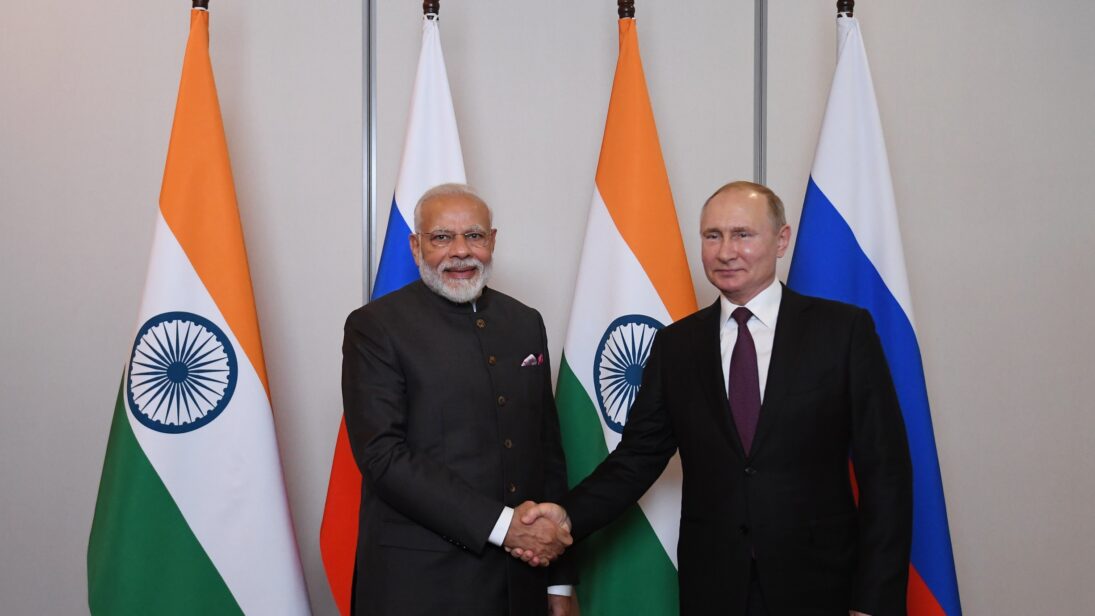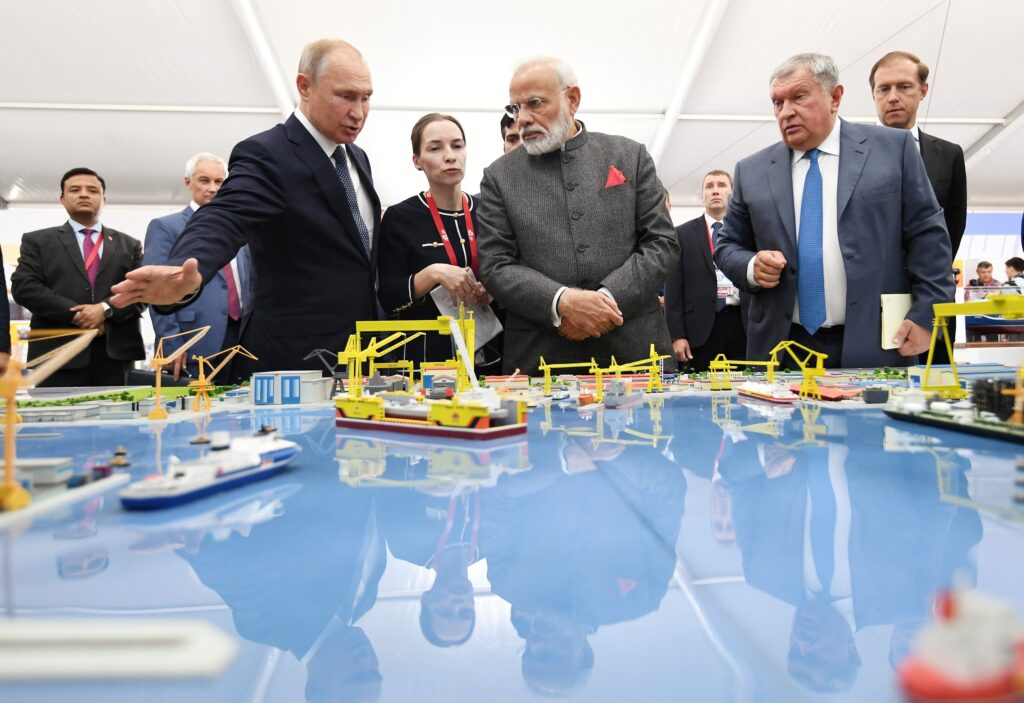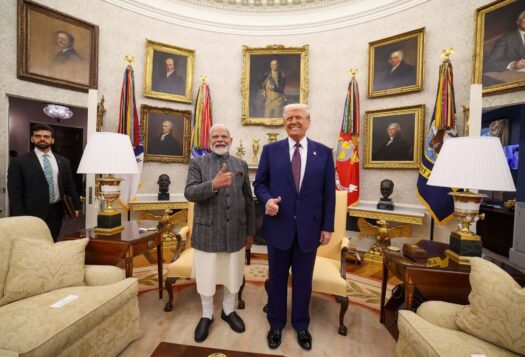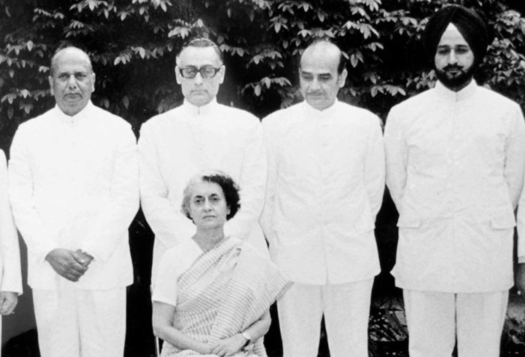
Editor’s Note: This piece expands on the author’s April 2021 policy memo “India and the United States: Friends Elsewhere, Foes at the UN,” written for the South Asia Visiting Fellowship.
The Russian invasion of Ukraine has once again snapped the world back into the Cold War-era rivalry between Washington and Moscow, where countries have to lean towards either side. The feud reached the doors of the UN Security Council (UNSC) responsible for the maintaining peace and security globally. The United States and Albania—currently an elected member—jointly moved a resolution deploring Russian aggression as a violation of the UN Charter. It received eleven positive votes and three abstentions from China, India, and the UAE before Russia vetoed it. India is serving an elected term of two years in 2021-2022. New Delhi’s decision to abstain “came as a surprise” to many in the west and the silence described as “absolutely deafening” given how determined India and the United States—along with Japan and Australia—as members of Quad are to take on Chinese aggression in Asia. Some have gone so far as to describe India’s demur as “a glaring fissure” in one of the key American partnerships. As discussed in an earlier policy memo for the Stimson Center, India’s abstention follows a pattern of divergences with the United States at the UN, which neither sides take as a glaring fissure. The Ukraine difference is another instance where India is walking a tightrope between a historic partnership (Russia) and an emerging partnership (the United States).
Given its non-aligned pedigree, India has historically chosen to sit on the fence at the UN in cases of great power rivalry with repeated abstentions in UNSC votes. However, in the decades following independence, as New Delhi’s interests grew with the former Soviet Union, so did its forbearance with Moscow. This was seen especially following the former Soviet Union’s invasion of Afghanistan. The Indira Gandhi government in 1980 was particularly sympathetic to Moscow and Gandhi even defended the Soviet invasion during her UN General Assembly address. The USSR, on its part, was a continuous veto provider on the Kashmir issue at the UNSC, when other powers such as the United States, the United Kingdom, and France were equivocating or balancing between India and Pakistan.
A section of Indian elites continue to hanker for a multipolar world and do not feel it strategically wise to put all their eggs in the U.S. basket.
Cut to the early 2000s, India embraced Washington and the west. More recently, its strategic proximity has grown with the United States with both countries agreeing to a Comprehensive Global Strategic Partnership in February 2020. Today’s India no longer relies exclusively on a Russia veto. The United States willingly does the heavy lifting for India whenever Pakistan formally rakes up the Kashmir issue at the UNSC, as was seen most recently in 2019 when Pakistan tried to raise the abrogation of Kashmir’s special status. Nor is trade a major factor with India’s overall imports and exports to Russia being less than 1.5 percent of total volume. Still, a section of Indian elites continue to hanker for a multipolar world and do not feel it strategically wise to put all their eggs in the U.S. basket. India’s growing proximity with the United States has not come at the cost of India’s partnership with Russia.
The critical ingredient of India-Russia bilateral remains New Delhi’s continued reliance on Russian weaponry. Based on various estimates, anywhere between 60 to 86 percent of India’s military hardware is of Russian (or Soviet) origin. Even as India continues to decrease its reliance on Russian arms and diversify its arsenal, the need for spares and services for the current inventory as well as the strategic logic of having Russia as a neutral party in any China-India conflict compels India from not ruffling any feathers with Moscow. Although Russia is not actively mediating the India-China border dispute, New Delhi understands Moscow’s heft with Beijing should such an occasion arise. Some Indian analysts also view the U.S. expectation for India to limit its ties with Russia or Iran through the prism of Pakistan, asking: If Washington continues to overlook Pakistan’s support for anti-India terror groups and rewards Islamabad with aid for its past and potential logistical needs in Afghanistan, why should India burn its own bridges with Moscow or Tehran?
This does not mean Moscow has India’s unconditional approval for all its acts. For example, India abstained from an Organization for the Prohibition of Chemical Weapons vote by Russia, which proposed a new investigation into the death of ex-spy Sergei Skripal—a vote Moscow lost in part due to 17 abstentions. In the Skripal case, there was a specific message to Moscow that India disapproved in that instance of the methods used to achieve the desired ends.

On the Ukraine issue, India has consistently chosen abstentions—a sign of neither approval nor disapproval. When Russia occupied Crimea, India abstained from a UNGA vote despite its National Security Advisor Shivshankar Menon recognizing “legitimate Russian interests” in the region. This time around India has dropped that accommodative phrase that tacitly endorses Russia’s right to preserve its sphere of influence. In a notable departure, India’s Permanent Representative to the UN included indirect references such as the need for “respect for the sovereignty and territorial integrity of states.” However, it fell short of condemning the invasion or voting against Russia. The Russian Embassy in India thanked it for abstention, while others argued India “rebuffed” President Biden’s appeal in censuring President Putin. To India’s credit, Prime Minister Modi appealed to President Putin for cessation of violence and return to diplomacy in a telephonic call.
It gets increasingly difficult for India to want the world to condemn Chinese aggression on its border while remaining silent on Ukraine.
As the Stimson Center memo outlines in detail, the voting divergences are minor irritants in an ever-strengthening bilateral relationship, however, as the case of Ukraine indicates these divergences will only become more visible as the India-U.S. partnership grows. Both sides have had exchanged views on enhancing multilateral cooperation—and are recommended to talk more frequently and frankly. However, for the foreseeable future, New Delhi may not be able turnaround its posture on Russia, even if it remains aloof demonstrating lack of approval or privately conveys its displeasure to Moscow.
It gets increasingly difficult for India to want the world to condemn Chinese aggression on its border while remaining silent on Ukraine. When confronted with this question at the Munich Security Conference, India’s foreign minister Jaishankar stated that the Indian response is a blend of “principles and interests.” This explains it all—a conflict between principled belief in territorial integrity while immense strategic equities with Moscow prevents India from taking sides, leading to yet another abstention.
***


